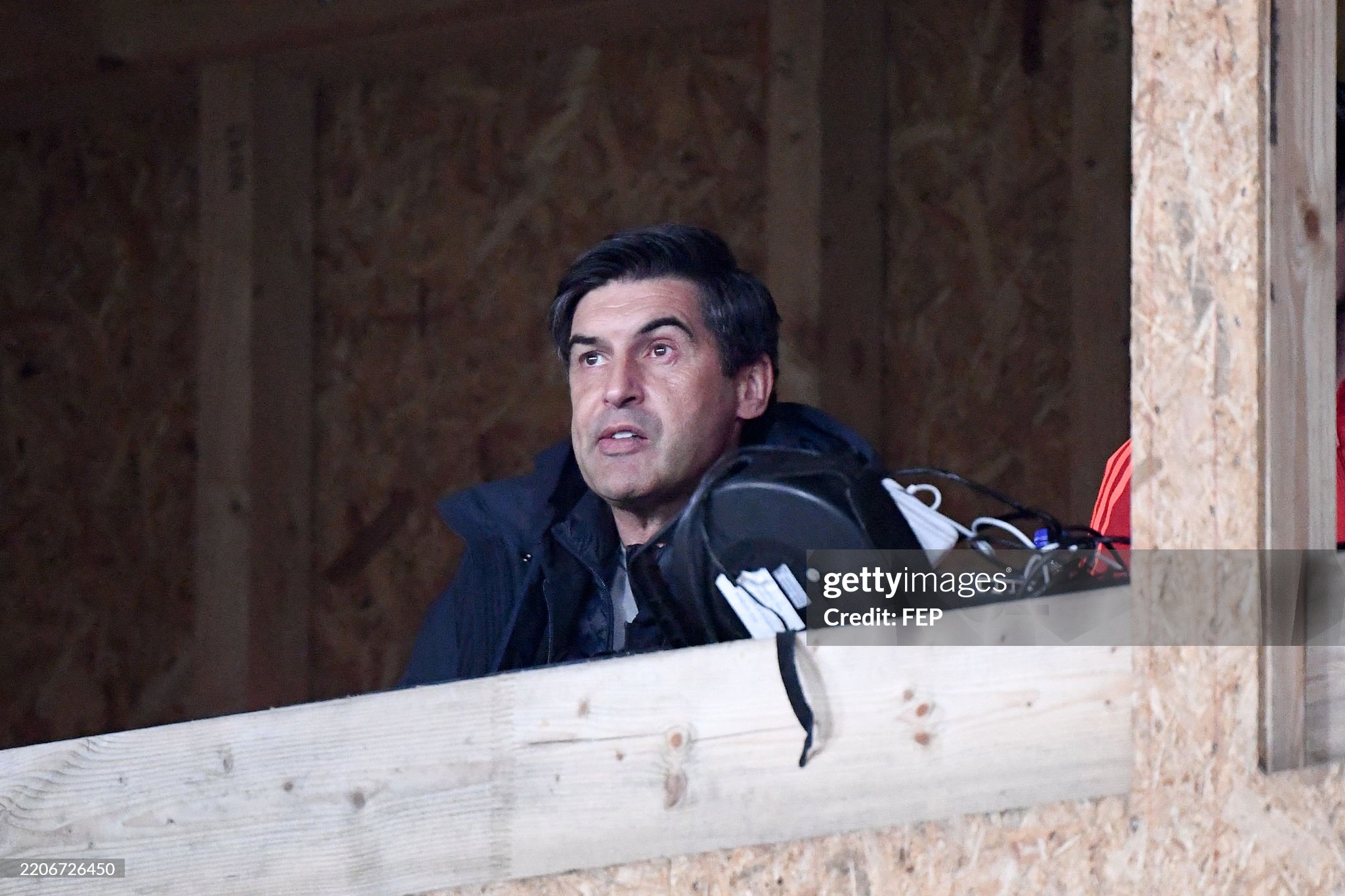So we won’t see Paulo Fonseca on the touchline at Ligue 1 matches until the end of November.
The Olympique Lyon manager has also been banned from entering the team’s dressing room until mid-September, limiting his ability to communicate with players and staff during crucial pre-match and halftime periods. For now, the Europa League remains the only competition in which he can continue to perform his full duties, offering him a narrow window to stay active on the sidelines.
The punishment stems from Fonseca’s furious reaction toward referee Benoît Millot during a controversial moment in a Ligue 1 fixture against Stade Brest. After a VAR decision went against Lyon, Fonseca launched a verbal tirade at the official, clearly letting his emotions take over in the heat of the moment. While no physical contact was made, and no threats were issued, the disciplinary committee came down hard on the Portuguese coach, issuing a nine-month ban a sanction many in the football community have deemed excessive.
Speaking to The Guardian ahead of Lyon’s Europa League quarter-final against Manchester United, Fonseca didn’t hold back in expressing his disbelief over the severity of the punishment. “It’s unbelievable,” he said. “Of course, what I did wasn’t right and I accept that I should be punished. I shouted at the referee that’s not acceptable. But I didn’t touch him, I didn’t use violence, and I didn’t cross a line that should justify being banned for nine months.”
Fonseca, who has built a reputation as a passionate but principled manager, believes the harsh penalty goes beyond the specific incident in question. In his view, he’s being used as a political tool a warning to others in the league. “They want to make an example out of me for French football,” he continued. “I’m not paying the price for what I did, but for the moment we’re living in. Maybe because I’m outspoken, maybe because I’m a foreigner who knows? But I just don’t think I should be used as a symbol. I should be punished for what I did, and nothing more. It’s unfair, and that’s why we’re fighting this decision.”
His frustration highlights deeper issues in football governance and how discipline is handled. Across Europe, similar outbursts have occurred many involving top-tier managers but rarely has such a long-term suspension been handed down. Fonseca noted this disparity, saying, “We’ve seen these kinds of situations in so many countries, and no one has ever received a punishment like mine. That’s what makes it so hard to accept. It feels like something else is going on here.”
Despite the setback, Fonseca remains optimistic. His legal team has already filed an appeal, which is scheduled to be heard next month. He’s hopeful the decision will be reversed or at least significantly reduced. “I think it can still change,” he said. “We’re doing everything the right way. We’ve filed the necessary documents, and we’re going to present our case clearly. I believe in justice. I have to.”
In the meantime, Fonseca has found strength in the support he’s received from within the football community. Former players, managers, journalists, and even rival coaches have reached out to express solidarity. “That gives me a lot of strength,” he said. “When people you respect and admire tell you that what’s happening is wrong, it means a lot. I’m very grateful for that.”
His absence from the dugout has already had an impact on Lyon, a club in transition that was counting on Fonseca’s leadership to guide them through a challenging season. With the team still chasing European qualification through the league and progressing in the Europa League, the lack of direct communication with their head coach has been noticeable.
While he can still prepare the team during the week, Fonseca must rely on his assistants to carry out matchday instructions. It’s a frustrating compromise for a manager known for his tactical flexibility and real-time adjustments. “Not being able to talk to the players in the dressing room, not being able to respond to what’s happening on the pitch it’s a strange and painful experience,” he admitted.
As Lyon prepare to face Manchester United in what could be one of their defining matches of the season, Fonseca remains focused on helping his team succeed, even from a distance. But his bigger battle for justice and fairness continues off the field.


